Introduction to the USSF Coaching License
The United States Soccer Federation (USSF) plays a pivotal role in the development and certification of soccer coaches across the nation. The USSF coaching license serves as a crucial component in the landscape of soccer coaching, offering a structured pathway for individuals seeking to enhance their skills and knowledge in the sport. This licensing system ensures that coaches are equipped with the necessary tools and strategies to foster player development and promote a deeper understanding of the game.
At its core, the USSF coaching license aims to standardize coaching education, providing a framework that aligns with the evolving dynamics of soccer. By obtaining this license, coaches gain access to a wealth of educational resources that cover various aspects of coaching, including technical skills, tactical understanding, and sports psychology. The emphasis on continuous learning within the USSF framework is designed to not only uplift individual coaches but also to elevate the overall quality of coaching within the sport. As a result, coaches are better prepared to nurture young talents, engaging them in a way that encourages growth and fosters a love of the game.
Furthermore, the licensure process is instrumental in creating a community of qualified coaches who share a common goal: enhancing the player experience. The USSF coaching license signifies a commitment to education and professional development, ultimately impacting the next generation of soccer players. As soccer gains popularity in the United States, the importance of valid coaching credentials cannot be overstated. Coaches who earn their USSF coaching license are well-positioned to contribute effectively to their teams, ensuring players receive high-quality coaching and support, which is foundational for their success on and off the field.
Different Levels of USSF Coaching Licenses
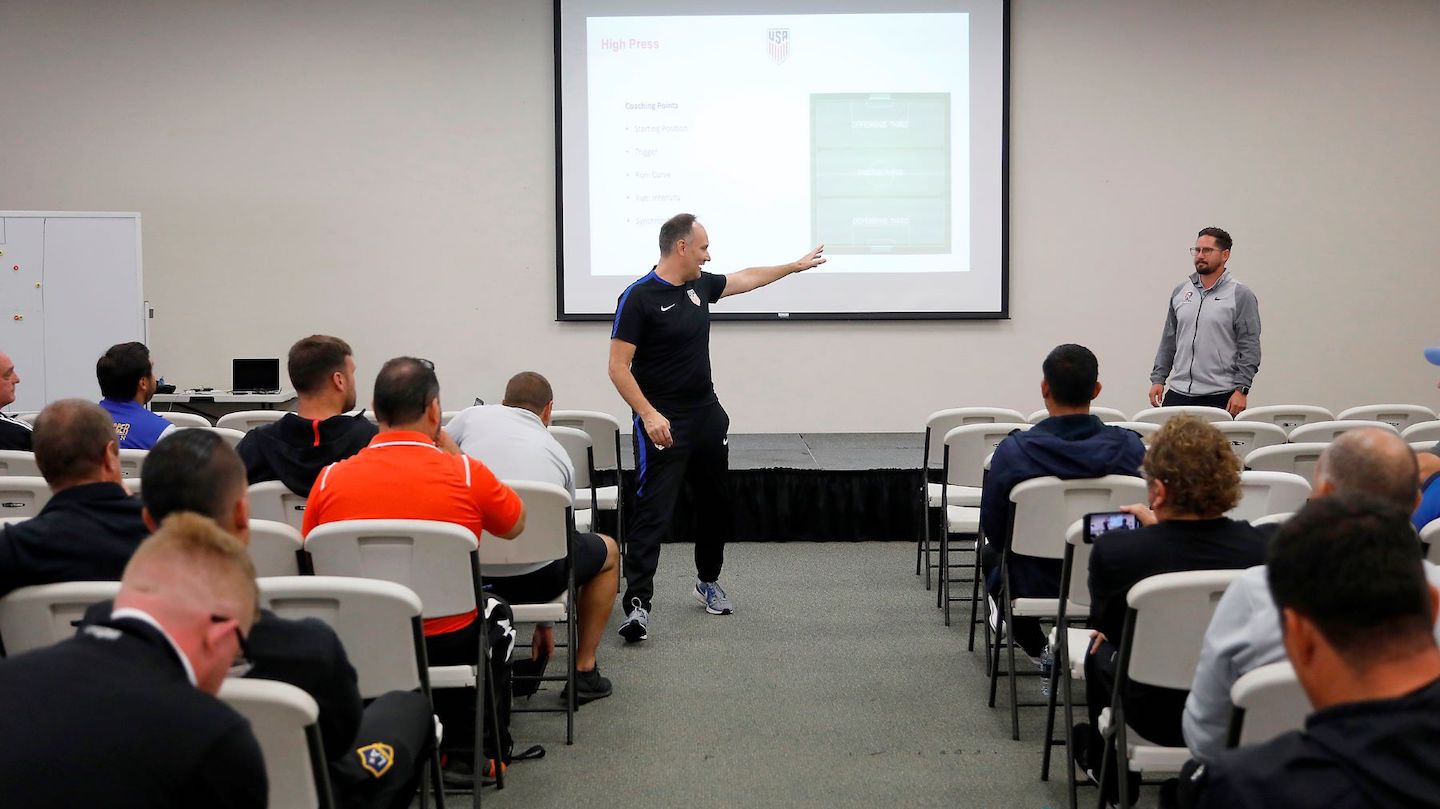
The United States Soccer Federation (USSF) offers a structured pathway for coaches through its various licensing levels. Each level of the USSF coaching license is designed to enhance the skills and knowledge necessary for effective coaching, tailored to the specific age group and competition level to which the coach is assigned.
Starting with the grassroots level, the USSF provides several introductory courses aimed at those new to coaching. The introduction to Youth Soccer and introductory coaching clinics are essential for parental figures, community volunteers, or individuals looking to step into coaching. These courses focus on basic soccer skills, understanding player development, and fostering a love for the game among young athletes. Obtaining a grassroots license is typically the first step for coaches aiming to engage with youth soccer.
As coaches progress, they can pursue the D License, which is geared towards coaches of youth teams aged 9-12. To earn this license, candidates must complete an online module and in-person training that covers coaching philosophy, age-appropriate practices, and game management techniques.
The next step is the C License, which is designed for coaches who work with players aged 13 and older. The C License requires more advanced training and a deeper understanding of tactical play, player psychology, and long-term development paths. It focuses on enhancing the coach’s ability to analyze and adapt playing styles based on individual player’s needs.
Beyond the C License, there are the B and A Licenses. The B License is for coaches who aspire to work at a higher competitive level or with advanced youth teams, while the A License is the pinnacle of USSF coaching qualifications, enabling individuals to coach at the professional level or within elite youth programs. Each of these levels entails rigorous assessments and commitment to ongoing education in coaching methodologies.
This structured approach ensures that coaches at all stages can develop their skills progressively while contributing positively to the growth of soccer in the United States.
Benefits of Obtaining a USSF Coaching License
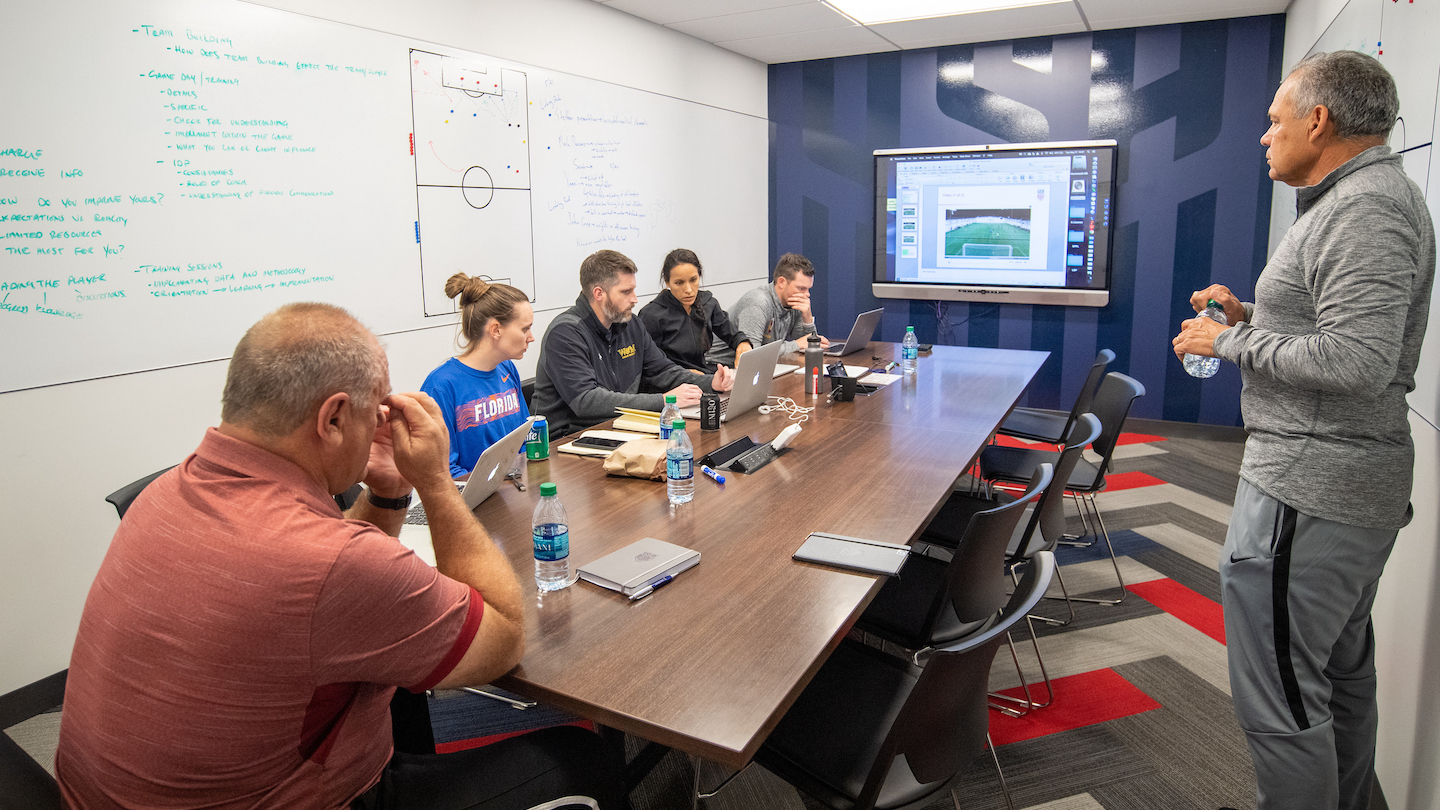
Acquiring a USSF coaching license offers numerous advantages for individuals passionate about soccer coaching. One significant benefit is the enhancement of a coach’s credibility. Holding a recognized coaching license signifies a commitment to professional development and adherence to standardized practices. This recognition can bolster a coach’s reputation within the soccer community, making it easier to secure positions at various levels, from youth leagues to semi-professional teams.
Furthermore, obtaining a USSF coaching license contributes to the improvement of coaching skills. The curriculum associated with the license covers essential topics such as tactical knowledge, player development, and sportsmanship. This structured learning not only enriches a coach’s understanding of the game but also equips them with practical tools to lead effective training sessions. As coaches become better equipped to teach strategies and techniques, they can significantly raise the skill level and performance of their players.
Networking opportunities are another essential benefit of obtaining a USSF coaching license. The licensing process often introduces coaches to a broader community, including fellow coaches, clubs, and soccer organizations. This network can facilitate collaboration and support, provide access to resources, and open doors to valuable mentorship possibilities. Engaging with other licensed coaches can also foster the sharing of innovative training methods and best practices that enhance coaching effectiveness.
Moreover, a USSF coaching license positively impacts player success. Coaches who invest time in their education are more likely to instill a strong foundational knowledge in their players. Skilled coaching leads to improved player performance and growth, ultimately benefiting overall team success. Therefore, pursuing a USSF coaching license not only advances a coach’s career but also contributes positively to the soccer community as a whole.
How to Prepare for the USSF Coaching License Courses

Preparing for the USSF coaching license courses requires a strategic approach to ensure that candidates are well-equipped for both theoretical and practical assessments. A crucial first step in this preparation is to gather all necessary study materials. The US Soccer Federation provides a plethora of resources that can help potential coaches understand the intricacies of coaching methodologies, player development, and game tactics. It is advisable to review the official USSF guidelines, which outline the expectations and content for each level of the coaching licenses.
Recommended reading includes texts on coaching philosophy and contemporary practices in soccer. Consider books that delve into game analysis, psychological aspects of coaching, and effective communication with players. Familiarizing oneself with these concepts can significantly enhance understanding and retention of the material covered in the courses. Joining online forums or local coaching groups can also provide valuable insights and support from fellow coaching aspirants.
Physical preparation is equally important, as the courses often include practical components that require demonstration of skills and fitness. Engaging in regular fitness activities such as running, agility drills, and soccer-specific exercises can boost stamina and demonstrate an understanding of physical conditioning. Moreover, coaches should consider participating in local pickup games or coaching clinics to refine their technical abilities and stay sharp.
Mental strategies play a pivotal role in succeeding in the USSF coaching license courses. Creating a study schedule can help manage time effectively and break down the material into manageable sections. Techniques such as visualization and mindfulness can improve focus and reduce anxiety during evaluations. Additionally, practicing teaching and coaching scenarios with peers can enhance communication skills, allowing for a more confident and effective performance in practical assessments.
Overview of the Course Structure
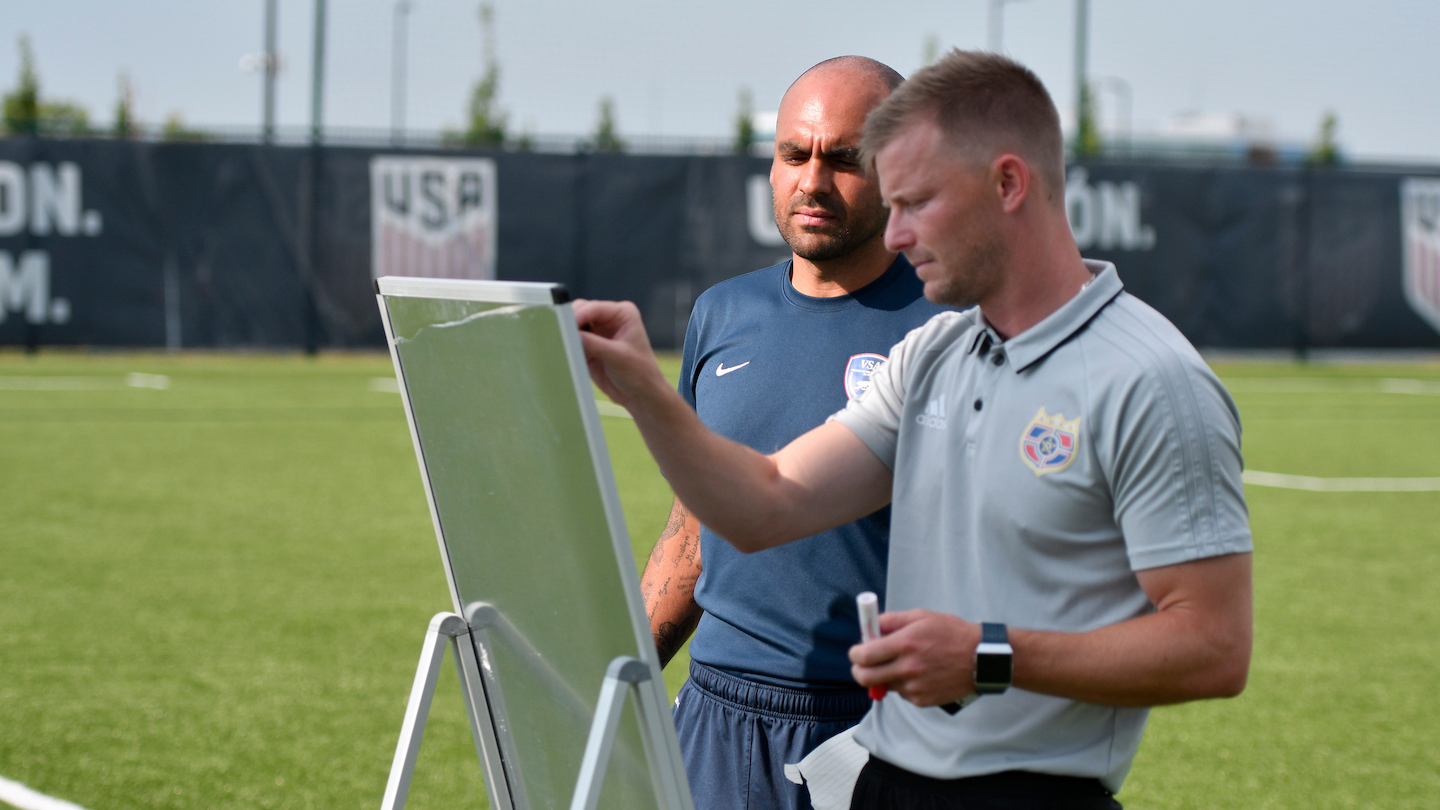
The USSF coaching license program is structured to provide a comprehensive training experience for aspiring soccer coaches at various levels. The course framework encompasses both online and in-person formats, allowing for flexibility in learning styles and schedules. Understanding the structure of the USSF coaching courses aids prospective coaches in effectively navigating their educational journey.
Typically, the courses are divided into several tiers, catering to different coaching levels, such as grassroots, intermediate, and advanced. Each level has its specific requirements and expectations. The duration of the courses can vary; while entry-level courses may be completed in a matter of days, higher-level certifications often span several weeks or even months, incorporating both theoretical and practical components.
Course components include interactive lectures, group discussions, and practical coaching sessions where participants can apply the knowledge they have gained. Emphasis is placed not only on tactical and technical understanding of the game but also on leadership, communication, and player development skills. A significant aspect of the program is the incorporation of assessments, which may include written exams, practical evaluations, and peer reviews. These assessments are designed to ensure that candidates demonstrate a competent understanding of the principles and practices of soccer coaching.
Moreover, the blend of online and in-person modules creates an opportunity to engage with experienced coaches and peers, fostering a collaborative learning environment. Online segments often consist of asynchronous learning materials, which allow candidates to digest content at their own pace. In-person sessions typically include hands-on coaching experiences and real-time feedback, enhancing the overall educational impact. By comprehending the structure of the USSF coaching courses, aspiring coaches can set realistic goals and tailor their study methods to maximize their learning outcomes.
Key Topics Covered in USSF Coaching License Training
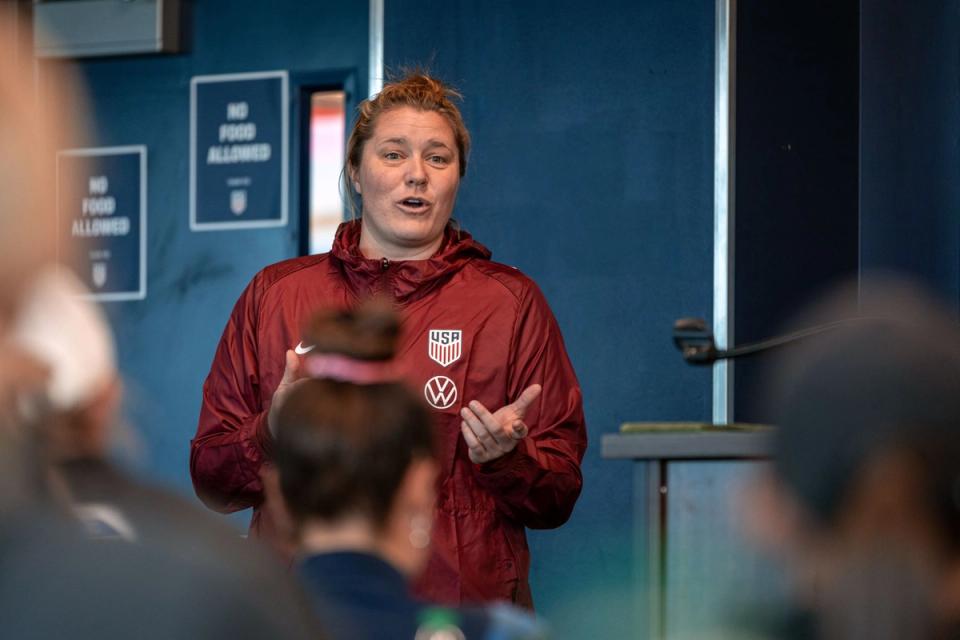
The USSF coaching license training encompasses a range of fundamental topics that are crucial for developing effective soccer coaches. One of the primary areas of focus is team management. Coaches learn how to effectively manage a team environment, ensuring that players are motivated and engaged. This includes establishing clear communication channels, setting team goals, and fostering a positive culture that encourages sportsmanship and teamwork. Understanding the dynamics of team management is essential for coaches aiming to create a cohesive unit that performs well both on and off the field.
Another critical area covered in the training is game tactics. Coaches delve into various strategies and formations that can be employed during matches. Understanding these tactical elements enables coaches to adapt their gameplay according to the strengths and weaknesses of both their team and the opposition. This knowledge equips coaches with the ability to make informed decisions during a game, ultimately contributing to their team’s success.
Coaching philosophy is also a significant component of the USSF coaching license program. Coaches are encouraged to develop their own philosophy, grounded in principles of sportsmanlike conduct, inclusivity, and development. A well-defined coaching philosophy helps in making consistent decisions regarding player development, practice structure, and overall team management.
Finally, athlete development is a crucial topic within the USSF coaching license training. Coaches learn strategies for fostering the physical and mental growth of their players. This aspect includes age-appropriate practices that promote skill development, as well as methods to help athletes build resilience, confidence, and a lifelong love for the game.
Overall, these key topics form the bedrock of the USSF coaching license training and significantly enhance the competencies of coaches in various settings.
Real-World Applications of the USSF Coaching License
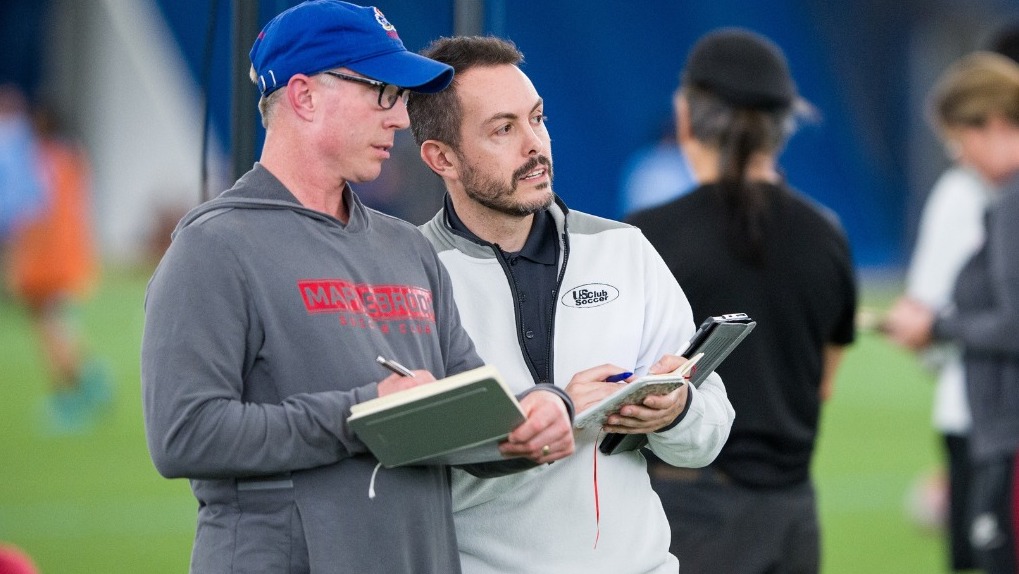
The USSF coaching license serves as a fundamental credential for soccer coaches aspiring to enhance their management and training skills. This certification not only signifies a formal recognition of a coach’s knowledge and competencies but also equips them with practical tools that can be readily applied in various coaching scenarios. Coaches who have successfully obtained their USSF coaching license often recount transformative experiences that reflect real-world applications in diverse settings.
For instance, many licensed coaches report improved game strategies as a direct result of their training. A USSF coaching license holder might implement innovative tactical formations learned during their coursework and training sessions. This application can be seen in youth soccer leagues, where coaches develop effective game plans tailored to the specific strengths of their players. By analyzing patterns, coaches can adjust their methodologies, ensuring that they are not only fostering individual player skills but also enhancing team cohesion through strategy.
Moreover, testimonials from licensed coaches emphasize the importance of fostering positive player development. One coach noted how the insights gained through their USSF coaching license helped them address both physical and mental challenges faced by their athletes. They reported successfully implementing drills and exercises that not only improved technical skills but also promoted resilience and teamwork among players. This holistic approach is paramount for developing well-rounded athletes who thrive both on and off the field.
The versatility provided by the USSF coaching license extends beyond just game preparation. Coaches have also highlighted its role in community engagement, utilizing the knowledge gleaned from their training to mentor young athletes. This engagement ensures a lasting impact through building strong relationships between coaches, players, and parents, which is vital for the overall growth of the soccer community.
Challenges in Obtaining a USSF Coaching License

Obtaining a USSF coaching license can present a variety of challenges for aspiring coaches, many of which require careful navigation. One significant hurdle is time commitment. The process often involves several hours of coursework, practical training, and ongoing assessments, which can be challenging for individuals balancing other professional and personal responsibilities. Coaches must manage their training schedules alongside full-time jobs or other obligations, making it essential to prioritize and create a manageable timeline for completing the required courses.
Financial implications can also pose a significant barrier to obtaining a USSF coaching license. The costs associated with the licensing courses, materials, and certification fees can add up quickly. Aspiring coaches may need to factor in these expenses into their budgets and seek additional funding sources, such as scholarships or grants offered by local soccer organizations, to alleviate the financial burden. Exploring options for online courses can also reduce costs while providing flexibility in scheduling.
Balancing responsibilities is another challenge that individuals may encounter. Many coaches have family, work, and community commitments that compete for their attention and time. It is crucial for prospective licensees to communicate their goals with family and support networks to gain their understanding and support during the licensing process. Additionally, developing a structured plan that outlines how to allocate time effectively can be instrumental in overcoming these challenges.
While the path to obtaining a USSF coaching license may be fraught with difficulties, aspiring coaches can find success by remaining committed and proactive in addressing these challenges. By understanding the time, financial, and personal elements involved, individuals can create strategies to navigate them successfully, ultimately leading to the successful attainment of their USSF coaching license.
Conclusion: The Future of USSF Coaching Licenses
The USSF coaching license plays an essential role in shaping the landscape of soccer coaching across the United States. As the demand for skilled coaches continues to grow, the evolution of coaching education is paramount. The USSF has recognized this need and is committed to adapting its coaching programs to meet the changing needs of the game and the players within it. This commitment ensures that coaches are well-equipped with the latest strategies, techniques, and theories that are fundamental for player development.
One trend that is becoming increasingly significant is the incorporation of technology into coaching education. Digital platforms and online resources are being utilized to provide coaches with access to a wealth of information and training materials. This shift not only allows for greater flexibility in obtaining a USSF coaching license but also enables coaches to stay updated on the latest developments in soccer training methodologies. Furthermore, the integration of data analytics in coaching practices enhances decision-making and player performance analysis, leading to more effective training sessions.
In addition to technological advancements, there is a growing emphasis on holistic coaching approaches that focus on the physical, mental, and emotional development of players. This paradigm shift encourages coaches to prioritize the overall well-being of their athletes, fostering a positive environment for growth. The USSF coaching license framework is evolving to reflect these values, thereby creating a more comprehensive approach to coaching education.
Ultimately, as the USSF coaching license framework continues to evolve, it is set to benefit both coaches and players alike. By enhancing the quality of coaching education, the foundation is being laid for a brighter future in American soccer. The significance of the USSF coaching license will only increase, reinforcing its vital role in developing the next generation of soccer talent in the United States.






